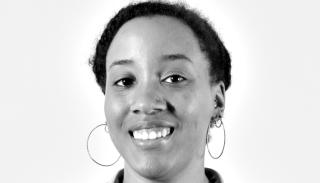
Looking for the Puerto Rican Doctors
Where are the Puerto Rican doctors going?
There has been much discussion about the mass exodus that has been happening in Puerto Rico over the past decade. And while much of the focus has been on the impact of the new migrants from the island to various Puerto Rican communities stateside, the effects on the island are only magnifying as time goes on.
As the recession hit the Commonwealth, it came on the end of a more than 40 year period of growth in the Pharmaceutical industry. At its height, more than 100 companies had facilities on the island, from pharmaceutical and medical device manufacturers to actual medical training facilities.
From the time the first pharmaceutical plan on Puerto Rico began its operation in 1957 to the 1990s, there was a particular combination of tax incentives and easy shipping benefits that encouraged these companies to take their manufacturing operations to the island at that time. When the tax incentives ended and the housing market crashed in 2006, many of the companies vacated the island leaving abandoned factories, taking countless jobs, and thus removing the career options many young workers, especially college-educated healthcare professionals, were seeking.
The impact of this recession only increases as Puerto Rico faces it’s $72 billion in debt. The debt has affected every aspect of public services and the public sector. Not exempt from this category is the medical field with a reported figure of over 3,000 doctors leaving the island over a five year timespan up to last year. Often they relocate to the mainland simply for a better paying job in a more flourishing economy.
The rate at which doctors leave the island for the mainland is one to two per day. The College of Physicians and Surgeons of Puerto Rico has the higher estimate at two doctors per day and also reported that doctors that are active in the field number 9,000, which is a reported 36 percent decrease from a decade ago at the beginning of the recession.
This rapid decrease affects the availability and quality of healthcare the more than 3.5 million who remain on the island need on a regular basis. Beyond general practitioners, medical specialists are also included in this number. Specialized care for those with specific health issues can come with long waiting lists and the absence of regular care. The New York Times reported that the island itself has one pediatric allergist, four geneticists, eight colorectal surgeons, and about 10 pediatric neurologists.
This workload is hard for the medical professionals but the cost and lack of care is especially hard on the patients. The medical professionals who remain on the island don’t always take the insurance or Medicare or Medicaid that many of the remaining families receive. As this is the only affordable health insurance option for many of those who remain on the island, the options for healthcare and medical services becomes even more limited than the numbers would suggest.
The refusal to take Medicare and Medicaid isn’t simply a decision by physicians to attempt to make more money. It is often a decision simply to maintain their livelihood. While Puerto Rico is a Commonwealth of the United States and its citizens are considered U.S. citizens, in its current status Puerto Rico gets much less of a share of the Medicare and Medicaid funding allocation than states on the mainland. In fact, Puerto Rico only gets 12 percent of their Medicaid bill much less than certain states but still on par with other territories such as Guam, American Samoa, and the U. S. Virgin islands.
And not surprisingly, Puerto Ricans on the island are already witnessing the ramifications of this fact. With reports from the Puerto Rico Health Department showing a consistent rise in death rates up for diabetes related illnesses 22 percent and hypertension related illnesses at 50 percent.
RELATED CONTENT
With this consistent decline in health care staff leading to the closing of several hospitals and other health facilities, the repercussions are impacting the entire island but one must wonder whether there are counter efforts to bring in more of the doctors and medical professionals "I have a hard time recruiting. We can't compete with institutions in the U.S.," says Dr. Fernando Luis Joglar, a vascular surgeon and President of the American College of Surgeons Puerto Rico Chapter.
The few doctors that have decided to stay on the island have ever-increasing workloads are also in charge of dealing with an increase of visits due to the mosquito-borne Zika virus that hit Puerto Rico earlier this year. According to Puerto Rico’s Health Department, the most recent reports note that a staggering 2,000 women have been diagnosed with the Zika virus on the island. With a declaration from the Center for Disease Control and Prevention that the island is “in the midst of a Zika epidemic,” the decrease in professional medical care comes at a time when the island may need it most.
Despite the lack of doctors on the island, neither the fiscal control board implemented by P.R.O.M.E.S.A. (Puerto Rico Oversight Management and Economic Stability Act) in reaction to the $72 billion debt nor the U.S. government have made any efforts to control this illness on the island outside of the aerial spraying many are opposed to. And unfortunately, some healthcare professionals suspect it will only get worse “As U.S. citizens, Puerto Ricans living and working in the island deserve the same access to health care as those on the mainland,” said Ricardo Rivera, head of the Puerto Rico Health Insurance Administration to NPR. “These hardships will only worsen if the U.S. government fails to extend equitable health care funding to Puerto Rico.”
The aerial spraying, known as Naled, has been promoted as a cure-all for the Zika virus and its impact on the island. Once it was originally promoted, the proposition to use the insecticide was met with outrage and protests, including a lawsuit from the city of San Juan in Puerto Rico that stated that it doesn't want to use Naled due to possible complications in humans such as breathing complications, skin irritation, nausea, headaches, damage to the nervous system and more.
With the Zika virus also being linked to microcephaly and only 90 obstetricians on the island, the care for children and babies can greatly impact Puerto Rico’s future for years to come if there are no efforts from the government to change the current trends of the health care exodus and Medicare and Medicaid assistance assigned to the island and other United States territories.
“Before the government ran into all these debts, we could provide adequate care here,” said Dr Joaquin Vargas, president of Puerto Rico’s Independent Physicians Association, who runs a clinic in Bayamon to Robin Respaut of Reuters. “Now, patients just get on a plane.











LEAVE A COMMENT:
Join the discussion! Leave a comment.